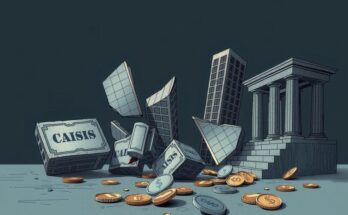The Brazilian judiciary’s actions against former President Jair Bolsonaro highlight the strength of democracy, contrasting sharply with the U.S. situation concerning Donald Trump’s accountability. Bolsonaro faces serious allegations related to a coup attempt and could be imprisoned for over 40 years. Brazilian politicians and legal experts express optimism about holding leaders accountable, celebrating their robust institutions even as they acknowledge ongoing challenges from Bolsonaro’s political legacy.
Brazilian democrats have celebrated the resilience of their nation’s judiciary after former President Jair Bolsonaro faced severe allegations of plotting a coup. This situation stands in stark contrast to the absence of accountability for former U.S. President Donald Trump concerning his anti-democratic actions. The Brazilian Attorney General formally accused Bolsonaro of orchestrating a conspiracy to maintain power following his electoral defeat in 2022.
The allegations against Bolsonaro include involvement in an attempted coup d’état, forming an armed criminal association, and efforts to undermine the rule of law, potentially leading to a prison sentence of over 40 years. Meanwhile, Donald Trump is embarking on his second presidential term without facing repercussions for his alleged incitement of the Capitol riots in January 2021.
Marcelo Freixo, a prominent left-leaning politician, stated, “In Brazil coup-mongers go to jail. In the US they get back into the White House,” highlighting the differences in accountability between the two nations. As details of the extensive indictment emerged, many Brazilians reflected on how close their democracy came to a violent disruption after Bolsonaro lost to Luiz Inácio Lula da Silva in the last election.
Bolsonaro allegedly orchestrated a complicated two-year authoritarian conspiracy, leveraging social media to disseminate disinformation about Brazil’s judiciary and electoral process. The plot also involved inciting chaos on the streets, which Bolsonaro purportedly used as justification for calling for military intervention. The indictment revealed plans to “neutralize” figures deemed adversaries, including high-profile individuals like Supreme Court Justice Alexandre de Moraes and President Lula.
In a troubling statement, Bolsonaro allegedly prepared a speech to justify his actions, drawing from the philosophy of St. Thomas Aquinas regarding resistance to “unjust laws.” Bolsonaro has vehemently denied the allegations, with his legal team expressing disbelief, while his son dismissed the indictment as a “sack of dung.” He asserted that Brazil’s judicial system has been weaponized against him in an attempt to suppress his political movement.
In contrast, progressive Brazilians praised their institutions’ effective measures against those purportedly plotting against democracy. Freixo commented, “Here in Brazil the institutions did their job defending democracy,” asserting that Brazilian institutions demonstrated greater strength compared to their North American counterparts, which failed to prevent a coup.
Former Justice Secretary Augusto de Arruda Botelho described the moment as historic for Brazil’s democracy, emphasizing the need for limits in democratic practice. His statements underscored that while political differences are vital, there are non-negotiable boundaries concerning legality, which Bolsonaro allegedly transgressed.
Constitutional law professor Conrado Hübner Mendes expressed confidence in sufficient evidence for a guilty verdict against Bolsonaro and noted that his legal troubles should conclude his political career. However, he cautioned that the political context, shaped by Bolsonaro’s radical successors, may persist. Botelho remarked that the duration of the legal process remains uncertain, and while Bolsonaro’s predicament may weaken him politically, it could also galvanize his supporters, portraying him as a victim of political retribution.
In conclusion, the legal challenges faced by Jair Bolsonaro underscore a significant moment in Brazilian democratic governance, demonstrating accountability that contrasts sharply with the United States. The allegations reflect a broader tension between political actions and the rule of law, emphasizing that democracies must establish clear boundaries. As Brazil navigates this political crisis, the resilience of its institutions will be pivotal in shaping future democratic practices.
Original Source: www.theguardian.com




